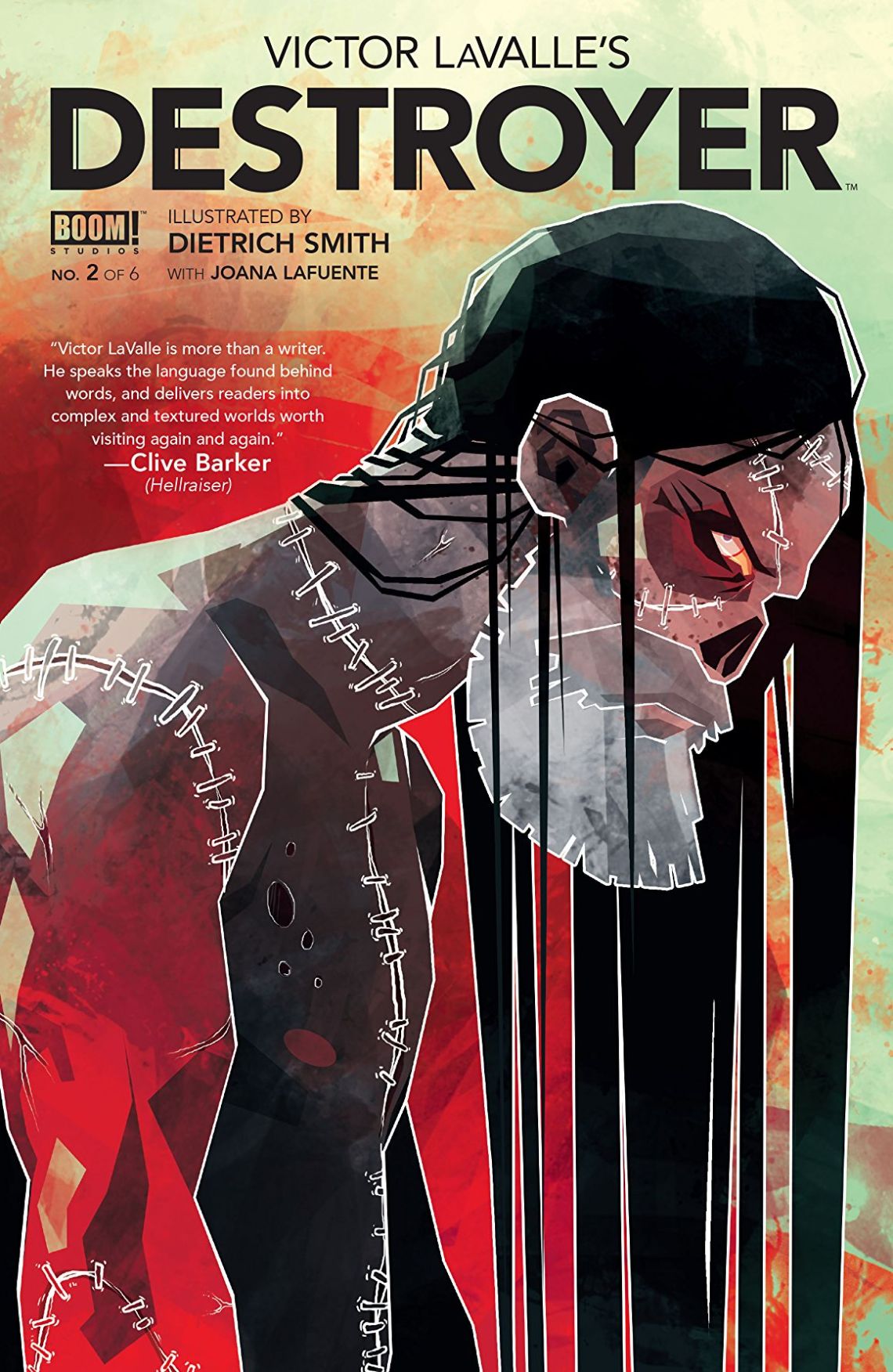 “Nothing is so painful to the human mind as a great and sudden change.” Mary Shelley, Frankenstein
“Nothing is so painful to the human mind as a great and sudden change.” Mary Shelley, Frankenstein
We live in a world of great and sudden changes that happen daily. Terrorists attack our nation, our nation attacks its citizens, and citizens are attacking each other. Our children are losing their childhoods and in too many cases, their lives. We as a community are having to deal with such traumatic losses every day and everyone has their own way of dealing with the madness. Famous author Mary Shelley dealt with the loss of her newborn by writing Frankenstein. She struggled with the question of life, death, and the afterlife within the pages of her book. Author Victor LaValle is continuing the story of Frankenstein as well as adding to the mythos in his new comic book series, Destroyer. The story deals with a scientist who is dealing with a loss of her own by creating something unimaginable. Frankenstein’s monster, who is still alive, learns about this doctor’s creation and goes in search of her. It’s an intriguing story that touches on many of the topics the original Frankenstein addressed. I had a chance to discuss with LaValle his creation and how its themes apply to our modern society.
All-Comic: Mary Shelley was inspired to write Frankenstein due to the death of her newborn child. What inspired you to create a sequel to Mary Shelley’s Frankenstein?
 AC: What is the Monster’s state of mind after being alone for so many years?
AC: What is the Monster’s state of mind after being alone for so many years?
VL: As people may remember from the novel (and from the original movies too), the Monster only ever wanted a little companionship. But this was always denied. So in my comic he’s been off in the wastelands of Antarctica (rather than the Arctic, which is where he was at the end of the novel). There he lives among the animals and has found a greater peace, and even acceptance. The creatures here don’t despise him for his face, his form. Some have even become friends, of a kind. He’s content, in other words. But humanity shows up to ruin that.
AC: Your version of the monster is almost an exact match for Mary Shelley’s description. Was this your decision or the artist?
AC: The flashbacks allude to a tragic death by shooting of the boy and is foreshadowed by the killings of the innocent whales at the beginning of the story. Will we see the monster involved in revenge for the boy’s death?
AC: We have seen time and again that bringing someone back from the dead usually ends badly. Has the Dr. Baker taken this into consideration or is she blinded by grief? Or maybe corrupted by grief?
VL: You’ve hit the balance perfectly. It’s both. The murder of her son has made her lose her mind. Full stop. But because her mind is on par with Reed Richards and Lex Luthor she can actually do some pretty amazing things with her intelligence. Whether they’re for the good or bad of the world is what the series, in part, explores.
AC: Will the topic of a person’s soul be tackled? WIll the boy be himself or a new person?
VL: I’ve thought about this quite a bit. What makes the soul? Is it really something supernatural or is it merely the accumulation of all the experiences we’ve processed in our lifetimes? If it’s the latter then, in theory, could a database essentially collect all that info? Could a soul be downloaded? Streamed? Akai’s existence offers a way to tease out these questions.
AC: What has been your favorite part of developing the story for Destroyer?
VL: I’m having such a good time writing two things: 1) the mother/son relationship between Dr. Baker and Akai and 2) the Monster killing anything and everything. Both end up with some profoundly moving moments. One is just much bloodier.
AC: What message do you hope that readers come away with when all is said and done?
VL: First, I want the reader to have a blast. I hate a book that gets so bogged down in its messages, or ideas, that it forgets to offer a sense of wonder and joy. What the hell is the point of a comic book if it can’t make you feel amazed on a regular basis.
That said, after the pleasures, I’d hope readers come away with a deeper understanding of what a traumatic loss can do to a person. Certainly we’re all bombarded by news accounts of various terrible things, but this can easily desensitize us to the experiences of the real human beings who endure them. Maybe someone reads the comic through to the end and the next time they see a mother on television, crying because her child has been killed, he or she will feel, on a visceral level, like they care about the pain they’re witnessing. Hell, it might even make them want to do something about it in their own neck of the woods. It would be amazing for a comic to play even a tiny part in such a thing.
Victor LaValle’s Destroyer is published by BOOM! Studios. Issue #2 was released this week.





comments (0)
You must be logged in to post a comment.